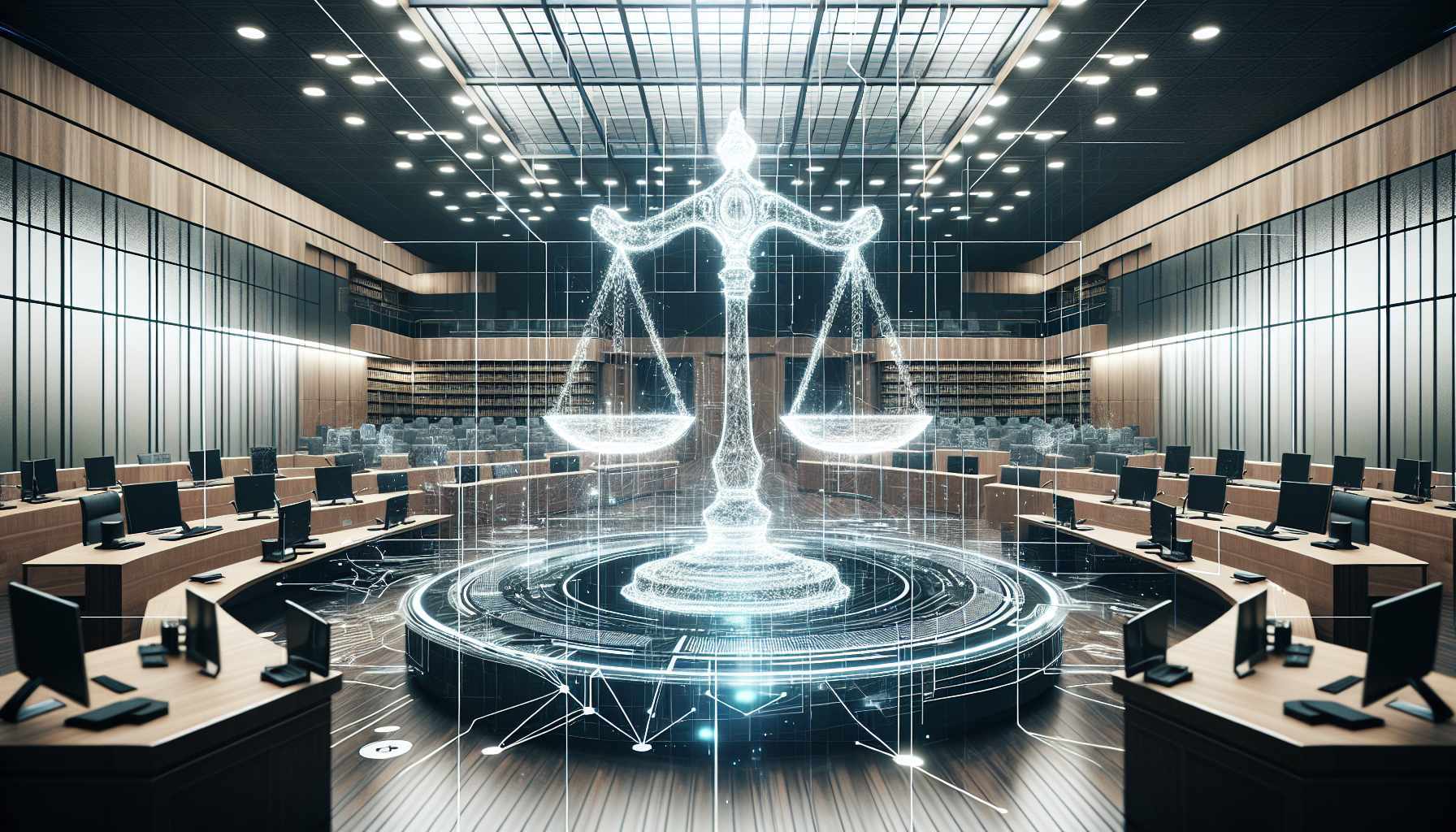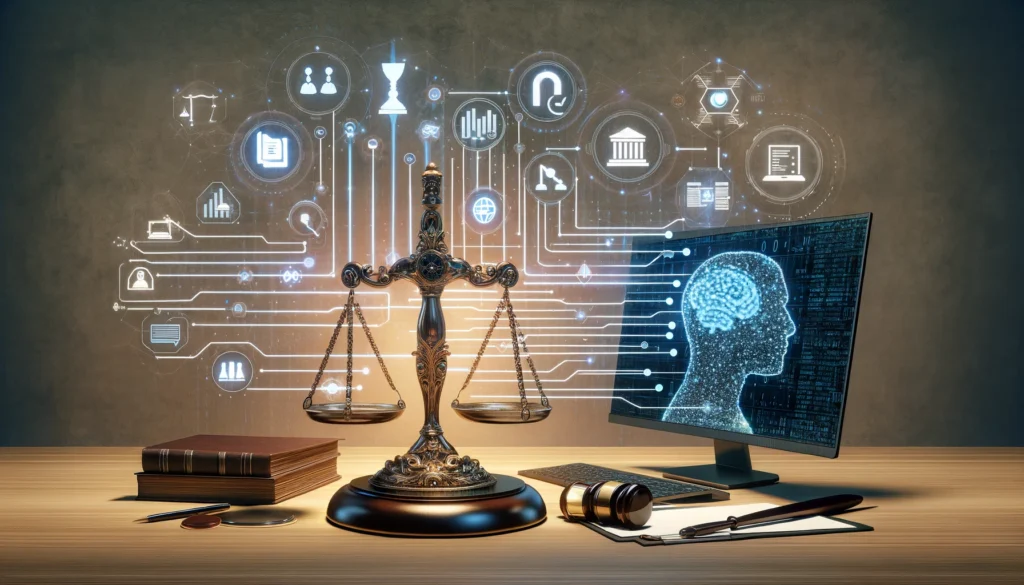
Charting the Future: Introduction and Goals
In today’s fast-paced corporate law environment, paralegals play a pivotal role in ensuring the smooth execution of legal documentation. With technologies like ChatGPT and other large language models (LLMs), the potential to enhance efficiency is unparalleled. This article aims to provide practical tips for paralegals to leverage ChatGPT in optimizing the drafting of vendor agreements, thus saving time and reducing errors.
Corporate law necessitates meticulous attention to detail, and paralegals often find themselves navigating voluminous paperwork. Here, we explore how employing ChatGPT can streamline the drafting process, allowing paralegals to focus more on strategic oversight and less on repetitive tasks.
The Digital Ally: Understanding ChatGPT’s Capabilities
ChatGPT, developed by OpenAI, is equipped with functionalities that are particularly useful for corporate law tasks. It excels in areas such as drafting, revising, and reviewing legal documents, offering a reliable helper for paralegals.
Utility: ChatGPT can generate initial drafts, highlight discrepancies, and suggest modifications, making the drafting process more efficient. Additionally, it can ensure consistency in legal language, which is crucial for maintaining the integrity of legal documents.
Ethical Considerations: While ChatGPT is a powerful tool, it is imperative to ensure that sensitive information remains secure. Paralegals must be vigilant about data security and ensure compliance with relevant privacy laws when using AI tools.
Understanding these capabilities sets the stage for effectively integrating ChatGPT into the workflow of drafting vendor agreements, which we will explore further.
Prompts with Prowess: Crafting Effective Input for Drafting Agreements
Ensuring that ChatGPT understands the specific requirements of a vendor agreement begins with precise and comprehensive prompts.
Best Practices:
- Be specific about the type of vendor agreement and its components.
- Include relevant details such as parties involved, scope of work, and key terms.
- Use clear, concise language to avoid ambiguity.
Types of Prompts:
- Initial Draft: “Draft a vendor agreement for a software purchase, including sections on payment terms, deliverables, and confidentiality.”
- Revision: “Revise the attached vendor agreement draft by incorporating standard termination clauses and updating the confidentiality section.”
- Specific Clauses: “Generate a clause that addresses liability limitations for the vendor in case of data breaches.”
By crafting well-defined prompts, paralegals can ensure that ChatGPT provides highly relevant and actionable drafts, setting the stage for accurate reviews and edits.
Boosting Accuracy: Techniques for Reviewing and Editing Drafts
Once ChatGPT generates a draft, the next step is thorough review and editing to refine the document.
Error-Checking: ChatGPT can perform initial error-checking to identify inconsistencies and grammatical errors. Paralegals should instruct it to “Highlight any inconsistencies in the contract’s language and suggest corrections.”
Grammar and Syntax: Use prompts such as “Check the attached document for grammatical errors and improve the language for clarity and precision.”
Compliance: Ensuring the document adheres to corporate policies and legal standards is crucial. Paralegals can prompt, “Verify that this contract complies with our company’s standard legal guidelines and edit accordingly.”
By leveraging these techniques, paralegals can enhance the accuracy and professionalism of legal documents, readying them for final review and client approval.
Essential and Expedient: Prompting for Customization and Specific Clauses
Customization is key to meeting unique business needs and legal requirements in vendor agreements.
Tailoring Drafts: Prompts such as “Customize this vendor agreement to include our standard NDA and IP ownership clauses” allow for personalizing drafts based on specific requirements.
Generating Specific Clauses: For clauses related to confidentiality, termination, and liability:
- Confidentiality: “Draft a confidentiality clause that includes provisions for third-party vendors.”
- Termination: “Create a termination clause outlining conditions for termination without cause by either party.”
- Liability: “Generate a clause limiting the vendor’s liability in case of indirect damages.”
Integrating Unique Terms: Use inputs like “Incorporate the following business terms and conditions: [specific terms].”
These methods ensure that the agreements are not only comprehensive but also tailored to fit the exact needs of the corporate entity.
Beyond the Basics: Advanced Prompt Engineering for Complex Scenarios
Complex vendor agreements often require nuanced handling.
Handling Intricacies: For complex agreements, advanced prompts such as “Draft a vendor agreement considering cross-border data transfer regulations and arbitration jurisdiction in New York” can be effective.
Precedent Cases and Updates: Provide historical legal context by prompting, “Incorporate relevant precedent cases and recent legislative updates in the agreement clauses.”
Using these advanced techniques, paralegals can ensure even the most intricate legal requirements are met, paving the way for accurate and compliant vendor agreements.
The Human Touch: Strategies for Harmonizing AI Assistance with Human Expertise
Despite the capabilities of ChatGPT, human oversight remains critical.
Balancing AI and Human Input: Paralegals should continually review and refine AI-generated content to align with strategic objectives and legal nuances. Regularly prompt AI with, “Provide suggestions for improving this draft based on recent case law.”
Critical Thinking: Applying legal acumen ensures the content is not only accurate but also contextually appropriate and legally sound.
Workflow Integration: Identify points in the workflow where AI can provide the most value, such as initial drafting and routine revisions, thus freeing up more time for complex analysis and client interaction.
By synergizing AI capabilities with human expertise, paralegals can achieve a harmonious and efficient legal drafting process.
A Glimpse Ahead: Future Prospects and Evolving Applications
As AI technology continues to evolve, its applications in legal drafting are poised to expand.
Emerging Trends: Trends such as AI-driven predictive analytics and automated compliance checking are on the horizon, promising to further streamline legal operations.
Advancements in LLMs: Future iterations of LLMs may offer enhanced capabilities for understanding and generating complex legal documents, incorporating real-time legislative updates, and providing detailed compliance insights.
Continuous Learning: Encouraging ongoing education and adaptation among paralegals will be crucial for leveraging these cutting-edge tools. Regular training sessions and knowledge-sharing platforms can help maintain a dynamic and proficient legal support team.
By staying abreast of these advancements, paralegals can continue to drive efficiency and innovation in corporate law.


